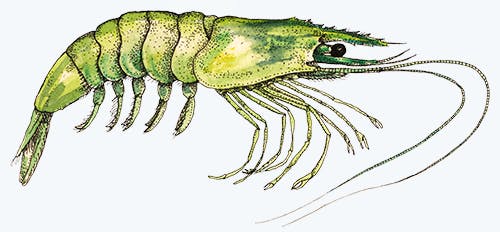Shrimp feeds need to fulfil nutritional and technological criteria to be effective. Paired with an understanding of the aquatic environment, water management, feed handling and feeding management, choosing the right feed for your shrimp greatly impacts your results.
All feed formulas developed by Aller Aqua at the Aller Aqua Research Centre follow these requirements to ensure proper growth and health:
Protein Needs:
Shrimp have relatively high protein requirements to support rapid growth and moulting cycles. Diets typically contain 30-40% crude protein, with younger shrimp needing higher protein levels (up to 45%).Fat and Energy Needs:
Lipid content usually ranges from 6-10% to provide sufficient energy. Essential fatty acids, especially omega-3 and omega-6, are important for growth, reproduction, and health.Essential Nutrients:
Shrimp require vitamins (A, C, D, E, B-complex), minerals (calcium, phosphorus, iodine, zinc), and carotenoids (important for shell pigmentation and antioxidant functions). Feeds often include additives to boost immunity and improve disease resistance.Feed Composition:
Diets are generally formulated with fishmeal, soybean meal, crustacean meals, and plant proteins. Feeds are usually pelletized to suit shrimp feeding behaviour and minimise waste.
